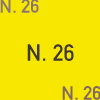Connected Leaning as systemic practice for teacher professional-development processes: a case study based on a combination of complex teaching strategies
DOI:
https://doi.org/10.7203/realia.26.18379Keywords:
Education for Entrepreneurship, Cross-Cutting Skills, Learning Assessment, Teacher Pro- fessional Development Abstract
Abstract
This article presents the experience of designing, implementing and evaluating a teacher professional development action focused on improving the teacher’s assessment skills, carried out -in this first edition - with 24 secondary school teachers from seven European countries. The course has been carried out in an in-campus-base mode. The objective is to propose a teacher training model that clearly responds to the basic principles of Networked Learning and that expands on the objectives of the project that covers it. Along these lines, the course designed, and the results obtai- ned by the participants will be analysed. The course is an integral part of a European educational research project whose purpose is the design, production and piloting of resources, methodologies and tools for the assessment of entrepreneurship competence in secondary education. The results of its implementation have been positive and the conclusions that emerge from the data highlight the importance of the strategies carried out to achieve the commitment of the participants and a coherent training model.
 Downloads
Downloads
 References
References
Álvarez, J. F., y Gisbert, M. (2015). Grado de alfabetización informacional del profesorado de Secundaria en España: Creencias y autopercepciones, Information Literacy Grade of Secondary School Teachers in Spain - Beliefs and Self-Perceptions. Comunicar: Revista Científica de Comunicación y Educación, 23(45), 187–194. https://doi.org/10.3916/C45 -2015-20
Benito, B. D., y Salinas, J. (2016). La Investigación Basada en Diseño en Tecnología Educativa. La investigación basada en diseño en Tecnología Educativa(0). https://doi.org/10.6018/ riite2016/260631
Castañeda, L., y García-Diaz, J. A. (2020). ESSENCE: Recursos y herramientas digitales para la evaluación de competencias transversales. Congreso Internacional EDUTEC 2020, 27- 30 de octubre, Málaga (Vol. 2020). UMA. Descargado de http://hdl.handle.net/10201/ 97806
Castañeda, L., Salinas, J., y Adell, J. (2020). Hacia una visión contemporánea de la Tecnología Educativa. Digital Education Review, 0(37), 240–268. https://dx.doi.org/10.1344/der.2020 .37.240-268
Dabbagh, N., y Castañeda, L. (2020). The PLE as a framework for developing agency in lifelong learning. Educational Technology Research and Development(68), 3041–3055. https://doi.org/10.1007/s11423-020-09831-z
European-Commission. (2013). Entrepreneurship 2020 Action Plan: Reigniting the entrepreneurial spirit in Europe. Descargado de https://eur-lex.europa.eu/legal-content/ EN/TXT/?uri=celex%3A52012DC0795
European-Commission. (2019). Structural indicators for monitoring education and training systems in Europe 2019: Overview of major reforms since 2015. [Euridyce Report]. . Descargado de https://data.europa.eu/doi/10.2797/256641
European-Union. (2016). Una nueva agenda de capacidades para Europa. Descargado de https://eur-lex.europa.eu/legal-content/ES/TXT/PDF/?uri=CELEX: 52016DC0381&from=EN
European-Union. (2018). Key Competences for Lifelong Learning (Anex) [Proposal for a Council Recommendation]. Descargado de https://ec.europa.eu/education/sites/education/files/ annex-recommendation-key-competences-lifelong-learning.pdf
Fiet, J. O. (2001). The theoretical side of teaching entrepreneurship. Journal of Business Venturing, 16(1), 1–24. https://dx.doi.org/10.1016/s0883-9026(99)00041-5
Goodyear, P., y Carvalho, L. (2014). Framing the Analysis of Learning Network. London: Routledge.
Heimerl, F., Lohmann, S., Lange, S., y Ertl, T. (2014). Word Cloud Explorer: Text Analytics Based on Word Clouds. 47th Hawaii International Conference on System Sciences (pp. 1833–1842). https://doi.org/10.1109/HICSS.2014.231
Henry, C., Hill, F., y Leitch, C. (2005). Entrepreneurship education and training: can entrepreneurship be taught? Part I. Education + Training, 47 , 98–111. https:// dx.doi.org/10.1108/00400910510586524
Hueros, A. D., Franco, M.-D. G., y Domínguez, C.-R. Y. (2017). Aportaciones de la formación blended learning al desarrollo profesional docente. RIED. Revista Iberoamericana de Educación a Distancia, 21(1), 155–155. https://dx.doi.org/10.5944/ried.21.1.19013
Jiang, Y., Ma, L., y Gao, L. (2016). Assessing teachers’ metacognition in teaching: The Teacher Metacognition Inventory. Teaching and Teacher Education, 59, 403–413. https://doi.org/ 10.1016/j.tate.2016.07.014
Johansen, V., y Schanke, T. (2013). Entrepreneurship Education in Secondary Education and Training. Scandinavian Journal of Educational Research, 57 (4), 357–368. https:// dx.doi.org/10.1080/00313831.2012.656280
Johansen, V., y Somby, H. M. (2016). Does the “Pupil Enterprise Programme” Influence Grades Among Pupils With Special Needs? Scandinavian Journal of Educational Research, 60(6), 736–745. https://dx.doi.org/10.1080/00313831.2015.1085894
NLEC. (2020). Networked Learning: Inviting Redefinition. Postdigital Science and Education. https://doi.org/10.1007/s42438-020-00167-8
Pagés-Costas, T., Sayós-Santigosa, R., Amador-Campos, J. A., González-Fernández, E., Marzo- Ruiz, L., y Mato-Ferré, M. (2016). Teacher training at theUniversity of Barcelona: satisfaction, transfer andimpact. @tic. revista d’innovació educativa(17), 41–48. https://dx.doi.org/10.7203/attic.17.9103
Shuster, M., Glazewski, K., y Villa, C. (2020). Design, Development, and Evaluation of a Teacher Workshop Enhanced with DNA Instructional Cases to Impact Content Knowledge and Confidence. The Interdisciplinary Journal of Problem-Based Learning, 14(1). Descargado de https://pubmed.ncbi.nlm.nih.gov/32788886/
Svihla, V., Kubik, T., y Stevens-Shauger, T. (2019). Performance Assessment Practice as Professional Learning. Interdisciplinary Journal of Problem-Based Learning, 13(2). https://dx.doi.org/10.7771/1541-5015.1812
Additional Files
Published
How to Cite
-
Abstract1571
-
Untitled (Español)2
-
PDF (Español)687
-
EPUB (Español)252
-
HTML (Español)267
-
XML (Español)110
Issue
Section
License
Authors who publish with this journal agree to the following terms:
- The Universitat de València is the editor of Research in Education and Learning Innovation Archives (REALIA) and retains the copyright of all that is published in the journal, while it allows and favours reuse under a copyleft license.
- The originals published in this journal are – unless otherwise specified – under a Creative Commons License: Attribution-NonComercial-ShareAlike 4.0 International (CC BY-NC-SA 4.0).
Research in Education and Learning Innovation Archives (REALIA) encourages authors to disseminate and give visibility to their research published in this journal. For this, REALIA wishes to inform that:
- Authors retain copyright and grant the journal right of first publication.
- The work is simultaneously licensed under a Creative Commons Attribution License: Attribution-NonComercial-ShareAlike 4.0 International (CC BY-NC-SA 4.0).
- Self-archive: Authors are permitted and encouraged to post their work online (e.g. in institutional repositories or on their website) to promote greater visibility and citation, with an acknowledgement of its first publication in this journal.



